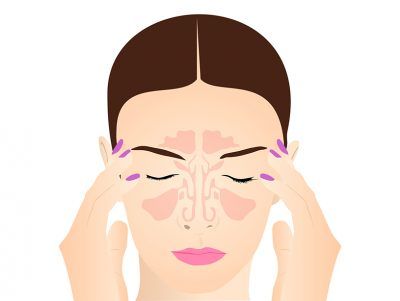Preliminary Study Links Migraines and Pregnancy Complications
New research suggests that women with severe migraines may be much more likely to experience complications during pregnancy and childbirth. Although the study couldn’t link migraines or their treatment to the complications explicitly, it does remind us that alternate treatments for migraine might be good during pregnancy. TMJ treatment is a drug-free approach that can reduce or eliminate migraines. Since many women develop TMJ during pregnancy, this might be an ideal time for women to determine if they will benefit from treating their TMJ.
Complications for Mother and Child
This study looked at a small sample of women (90) who sought emergency care for migraines during pregnancy. It found that these women had much higher rates of pregnancy complications than the general public.
For example, 20% of the migraineurs had preeclampsia, compared to about 8% in the general population. Women with preeclampsia experience dangerously high blood pressure, swelling in hands and feet, and protein in their urine, evidence of kidney damage.
About 30% of women with migraines had a preterm birth, compared to only about 10% of the general population. And 19% of women delivered a low-birth weight baby, compared to just 8% in the general population.
Women with migraines who were also aged 35 and over had a much higher risk of complications than others: about seven times more likely to experience complications.
What Is the Cause?
Researchers pointed out that they couldn’t attribute the pregnancy complications as being caused by the severe migraines, so we have to be careful thinking that migraines cause pregnancy and birth complications. It may be that, in some cases, at least, the migraines are actually caused by the complication. The high blood pressure associated with preeclampsia, for example, could contribute to migraines, which are neurovascular headaches.
Most of the women in this study (62%) received a combination of pills and intravenous drugs to treat their migraines. Again, though, researchers pointed out that their study didn’t allow them to attribute a causal role to the drugs, although many drugs are associated with pregnancy complications.
TMJ and Pregnancy
Many women experience TMJ during pregnancy. Some common causes of TMJ during pregnancy include:
- Stress-related clenching and grinding
- Sleep disruption
- Morning sickness
- Swelling
- Posture changes
- Relaxin
Some women start clenching and grinding their jaw because of the stress of pregnancy. Sleep disruption can also contribute to clenching and grinding. Morning sickness can also cause significant stress on the jaw joint. Others experience pressure on the jaw joints related to swelling during pregnancy. Still others may find that postural changes related to pregnancy can impact their jaw joints. Finally, the hormone relaxin helps the body's joints loosen to make delivery easier. However, it can also disrupt the function of other joints, including the jaw.
Sometimes TMJ was an intermittent annoyance before pregnancy, then worsened, but other women develop TMJ with no previous history.
Treating TMJ During Pregnancy
No matter what the cause of pregnancy-related TMJ, it is possible to get treatment without drugs. You can start with home care. Apply ice to sore joints. Ice works better for joints because joint pain is often related to inflammation, and heat can make inflammation worse. Apply heat to sore jaw muscles. Heat helps them relax. Some studies show that chocolate might also be effective for TMJ relief. Since chocolate has also been linked to happy babies, this seems like a harmless home remedy to try--just don't overdo it!
If home care isn't helping and your TMJ is disruptive or persists for more than a week, you should see a professional for care. We offer several drug-free TMJ treatments that can be effective during pregnancy. One is TENS (transcutaneous electrical nerve stimulation), a kind of mild electric massager. This is safe during pregnancy--it's often used to help with back pain--and can provide immediate, short-term relief from sore jaw muscles. TMJ treatment can also involve an orthotic that can hold your jaw in a more relaxed position. After your pregnancy, we can evaluate the state of your TMJ and determine whether ongoing or alternate treatment is necessary.
If you are experiencing TMJ symptoms such as migraine, jaw pain , or tinnitus during pregnancy, we might be able to help. Please call (248) 243-7711 for an appointment with a Detroit TMJ dentist at the Michigan Center for TMJ & Sleep Wellness.












